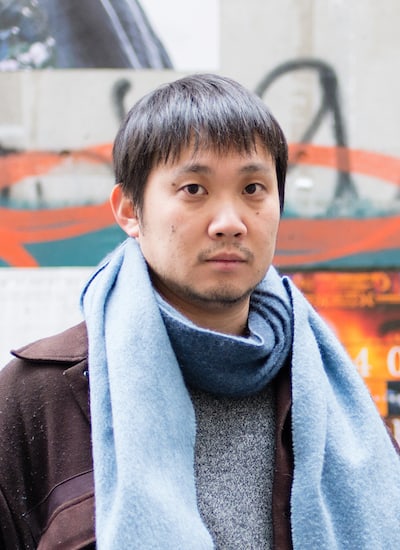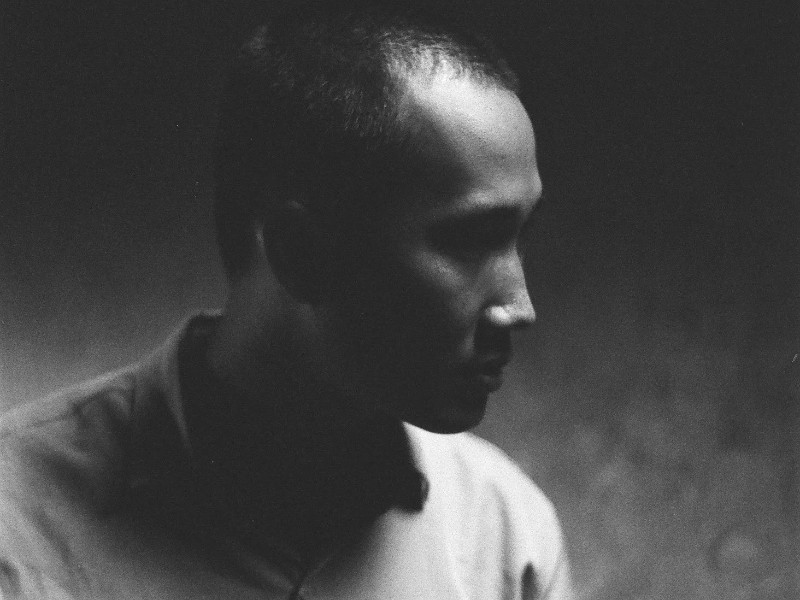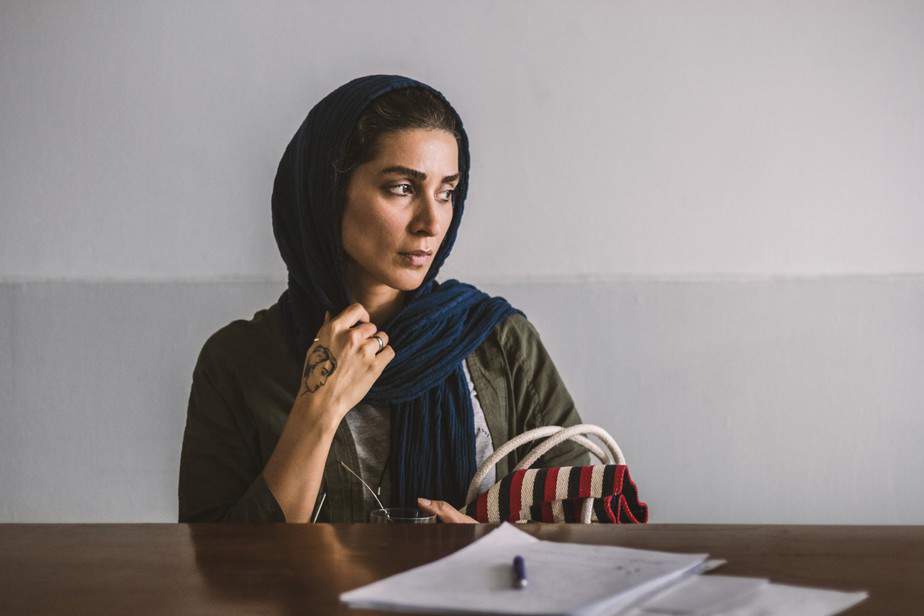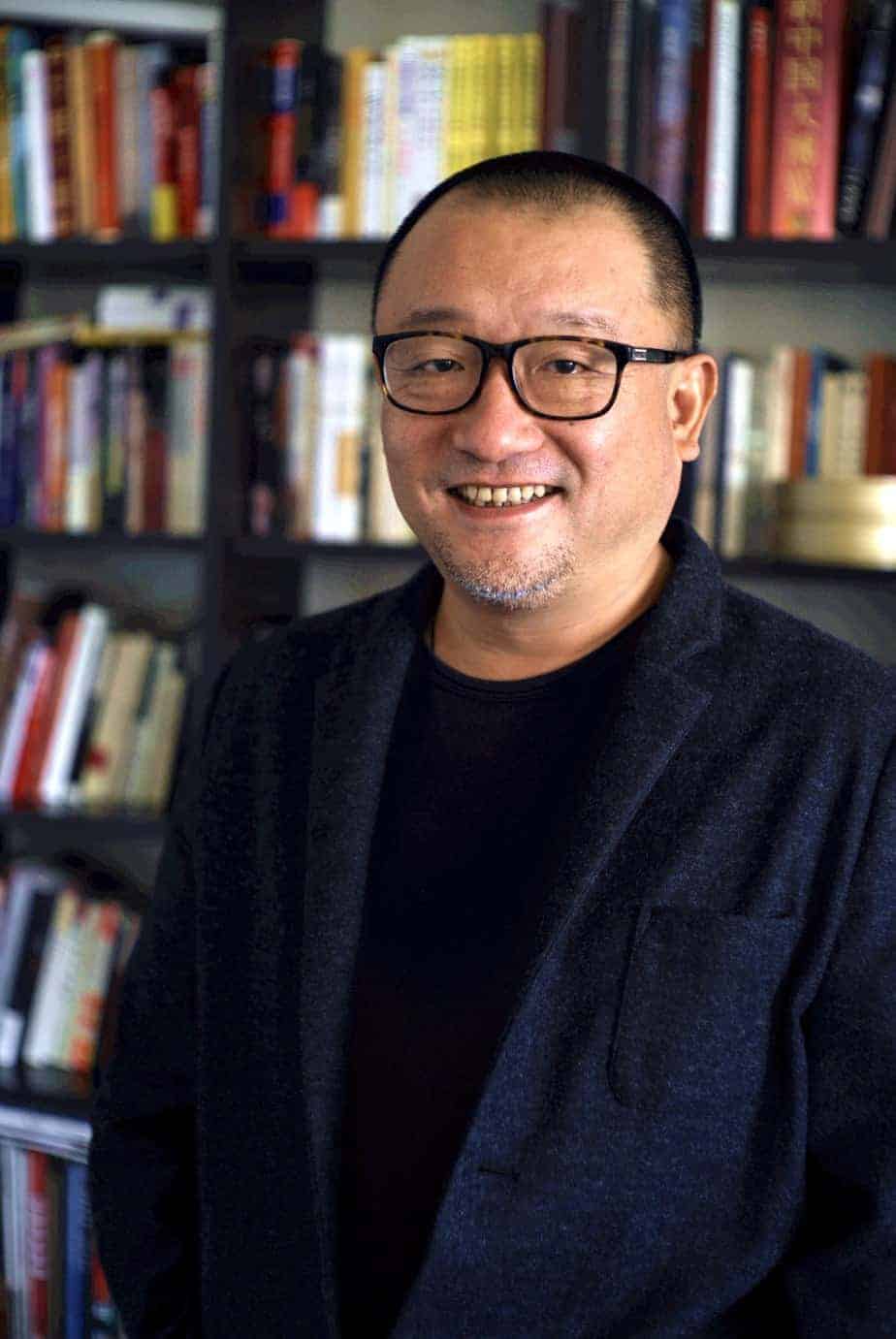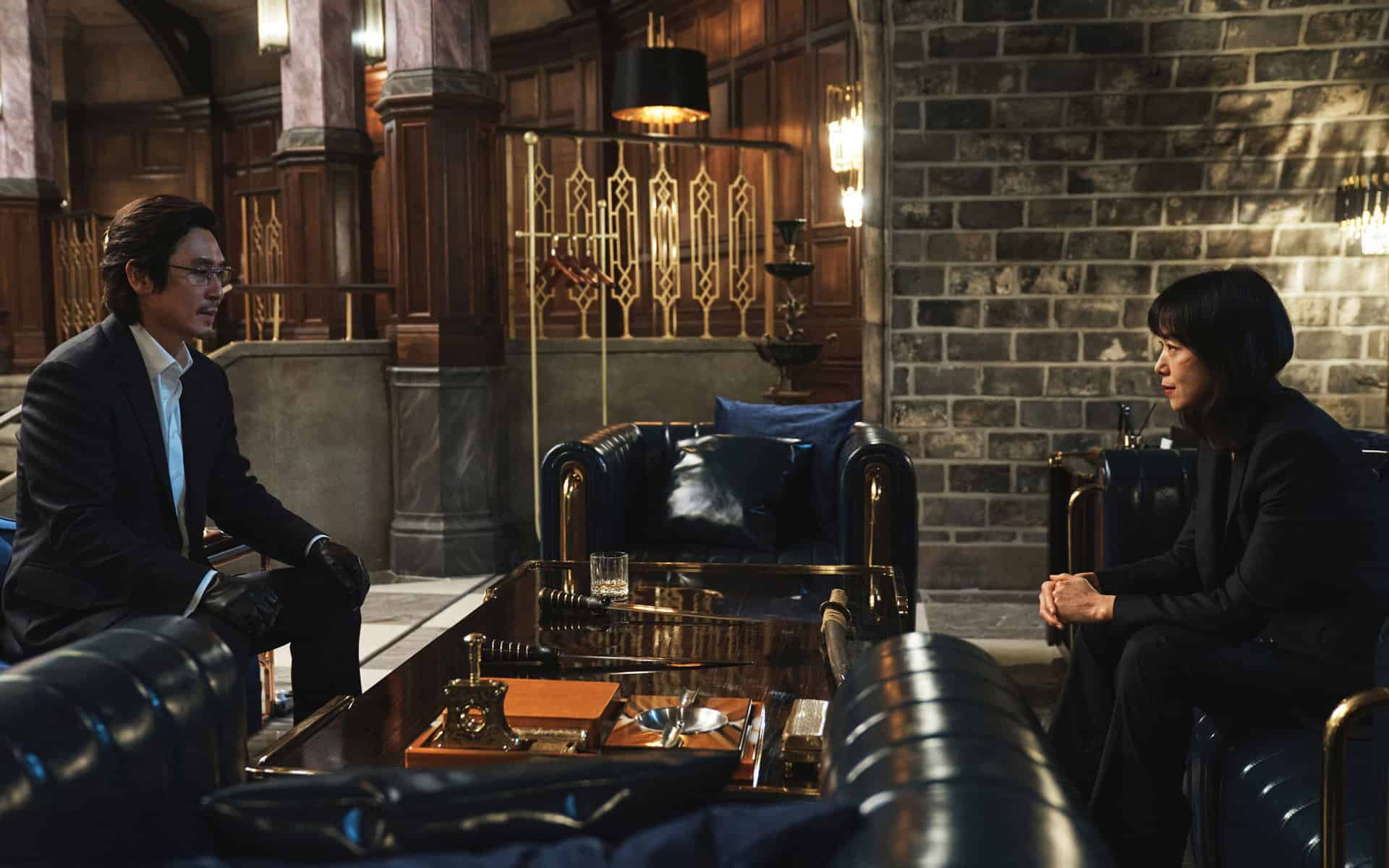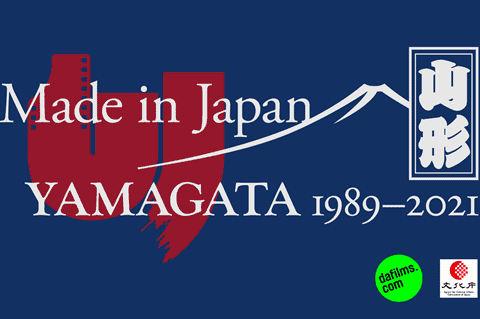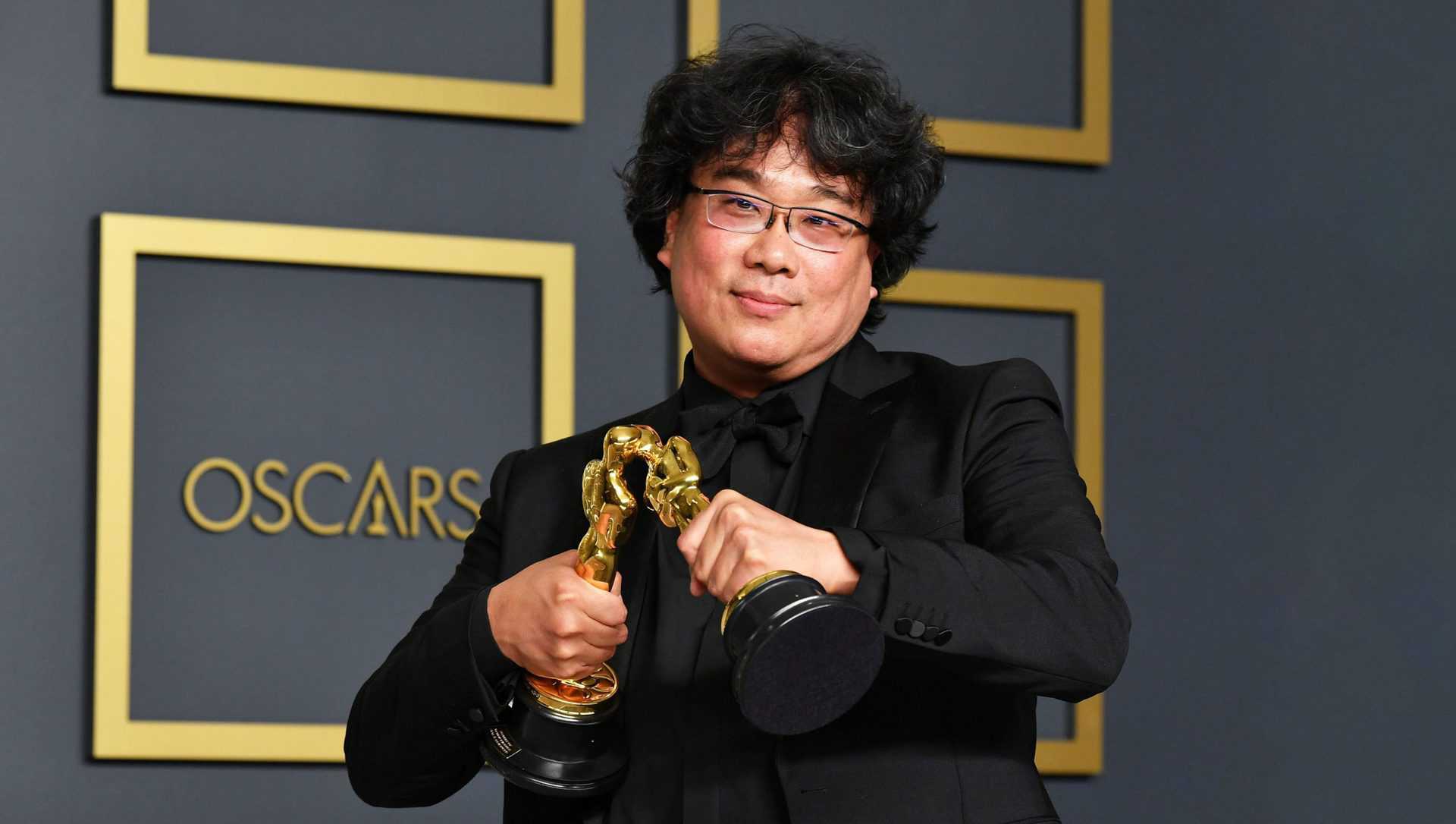European A-list festivals have rolled their red carpets multiple times for Ryusuke Hamaguchi, who started conquering the Old Continent with his graduation film “Passion” in the official selection of San Sebastian in 2008. Three years later, he was in the official selection of Locarno with “Sound of Waves”, and in 2015 – in Locarno again – his film “Happy Hour” won the awards for Best Actress (shared by four leads: Sachie Tanaka, Hazuki Kikuchi, Maiko Mihara and Rira Kawamura) and Special Mention for Script (penned by Hamaguchi, Tadashi Nohara and Tomoyuki Takahashi). Cannes welcomed him in the official competition in 2018 with “Asako I & II”, and now he's in the main competition of Berlinale with his omnibus “Wheel of Fortune and Fantasy”, consisting of three short films dealing with the theme of coincidence and imagination.
We had the opportunity to talk to the director about his ideas and inspirations in a generous one-on-one interview, due to this year's special circumstances – done over a Zoom call.
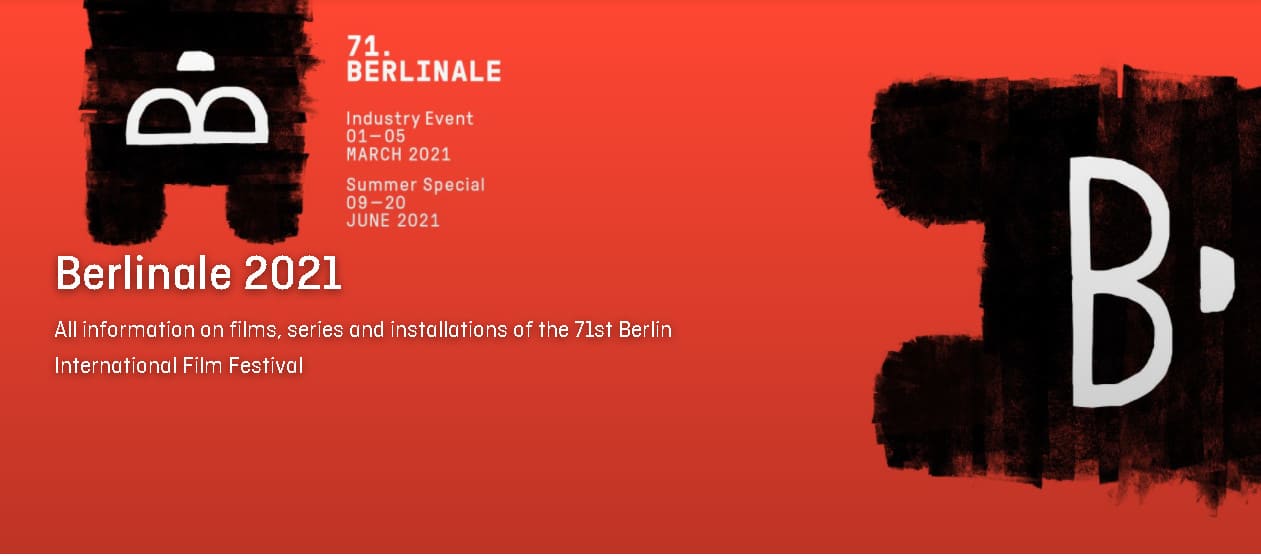
”Wheel of Fortune and Fantasy” is a film composed of three of the seven stories that you wrote around the same time . Can you tell us something about the inspiration for them?
Speaking of direct inspirations, I have to quote Eric Rohmer. To make a small digression, when “Asako I&II” screened in France where they also did a retrospective of my works, I got to speak to Mary Stephen, Rohmer's long-time editor about what short films meant to him. I found out that they were very important to him which is also true of me. It's a generous expression form and a good exercise to get more prepared for future projects, so I really wanted to make these shorts, but I also had to make sure they were going to be seen by people. That's what made me thinking about “Rendezvous in Paris” where Rohmer also strung together three vignettes and turned them into a feature film. I also knew that such decision would be a great motivation for my cast and crew as well.
In regards to how those stories are different, I wrote seven of them out of which I thought that these three were a good start. Once again, the biggest reference was “Rendezvous in Paris”. The first short is about a triangular relationship, and it's a story I felt the average audience can identify and sympathise with. But in the second one, I set up a larger distance between what's actually happening and the audience. I sort of included a darker side to the story in order to achieve that, and in the third story, I wanted to bring the audience back closer into the narrative. To make them feel more relaxed or calm. But I also wanted to make sure that it was much different from the first story and turn it more complex. This kind of structure is actually directly referencing the way “Rendezvous in Paris” was structured as well, at least that's what I think.
In the story “Magic or Something Less Assuring”, there is a very long scene of two women conversing in a taxi which very much reminded me of Abbas Kiarostami, that was a special kind of intimacy is caught in a moving car.
Kiarostami is a filmmaker I very much respect. There are so many of his films that I love, but particularly “10 on Ten”. I remember watching the film and seeing people talking in the car, realizing that you can actually make such a film that is interesting, so I am very happy that you bring his name up here. On the other hand, I am obviously not Kiarostami and I wanted to make a different kind of film. While working on this film, I really wanted to challenge myself, and one of the things that I was absolutely set to do was to write something that I never have written or done before. One of those challenges was to write a conversation between two women, which I wasn't sure I was able to do, so the film was my attempt to do exactly that.
To be honest, it is hard for me to say whether I am expressing women's perspective properly. In fact, that's not something that I would know for sure. Regardless of gender, I am trying to express something truthful about every character that I work with, man or woman. One of the methods that I use is to try to listen to as many people as possible about something they experienced, similar to that what I am putting my characters through. One other thing which is very important to me is the realisation that people, regardless of their gender ,don't necessarily have to be fundamentally different. At the end of the day, we can have similar desires and aspirations.
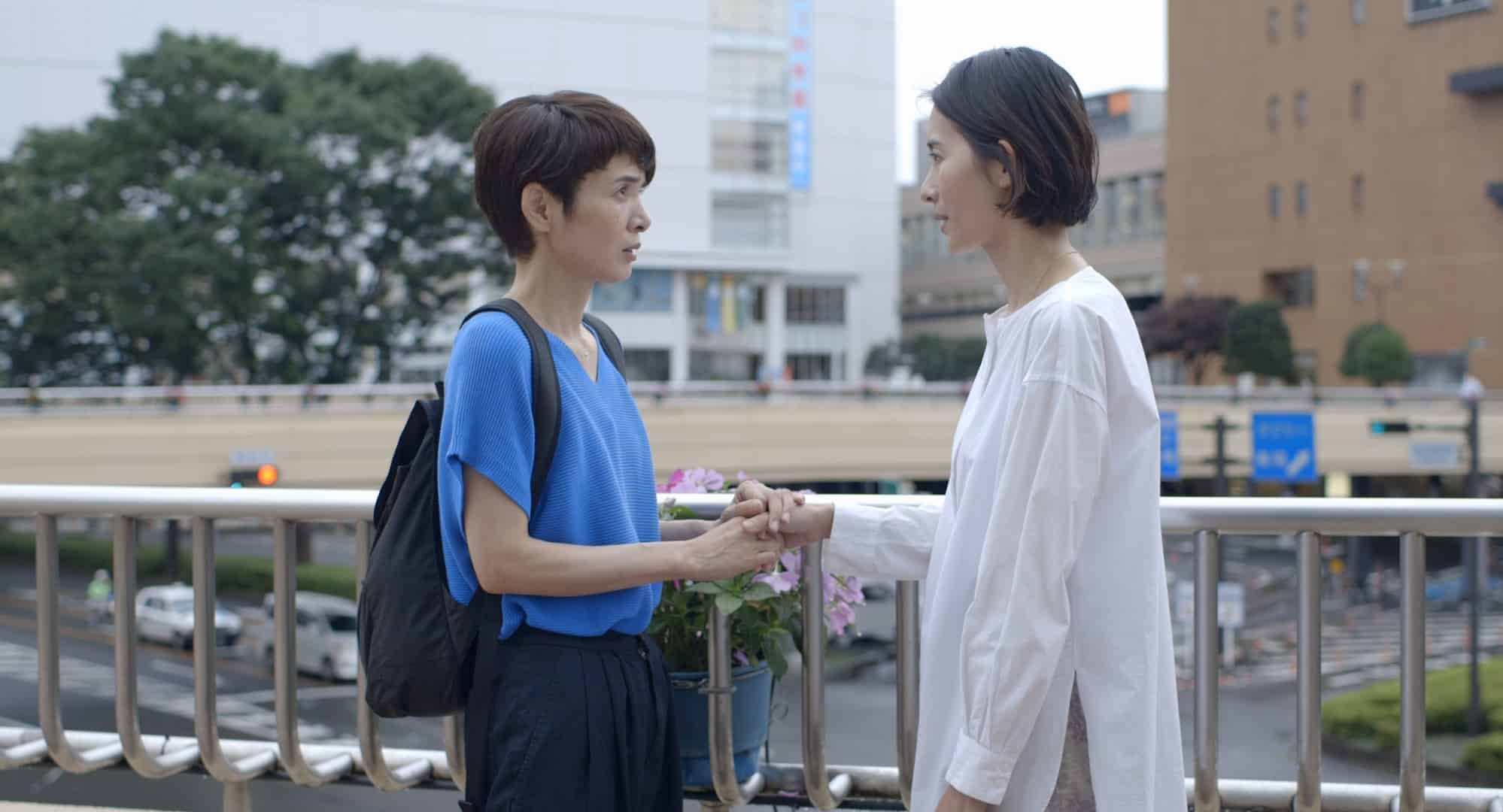
The 3rd t story titled “Once Again” plays in the world in which all form of digital life was erased over night by a computer virus. But we don't land in a sci-fi setting, we are just transported into the forgotten way of communication and tracing memories.
Thank you for interpreting the story that way. One of the reasons why this story ended up being a curious piece is because of Covid-19. The first two stories were already written in 2019, and both were shot that same year. The third one was shot in July 2020 after the first state of emergency was lifted in Japan. Along the time, some bits were altered in the scenario, but I would say that 90% of it was still faithful to the original piece. I absolutely didn't want to change the characters, because I like them very much, but shooting in Corona times meant that it was going to be very difficult to shoot with physical closeness and people's proximity. There's a hug in the film which I knew would be difficult to pull off, adding to the fact that Japanese people already have hard time with physical interactions.
I didn't necessarily want to depict Corona virus but psychologically, I knew that I couldn't ignore what is happening, especially because I would see everyone wearing masks every single day. I knew that I have to find a way of working around this, so what I did was to incorporate this sci-fi element. In doing that, I kind of leaped over reality we are living today. Nowadays, all of us are getting connected virtually, and here I flipped the situation. The virtual world is gone, and everybody has to see each other offline, in person. That is how I was able of dealing with the current situation.
The title of the 2nd story “Door Wide Open” can be interpreted in a couple of ways, but I would like to hear your personal take on it.
I know somebody who's a university professor and who told me that they have to leave the doors open because sensibilities around sexual harassment in academia. Researchers and tutors have to keep their doors open, and that is related to the idea that there is a power structure. It is staying open not only to protect students, but also to protect professors. When I heard about it, I thought that it was a very interesting situation and was curious to explore it.
The title refers more to things remaining open to possibilities. There is a sense and meaning behind the idea of not knowing what is going to happen once you leave a door open.


